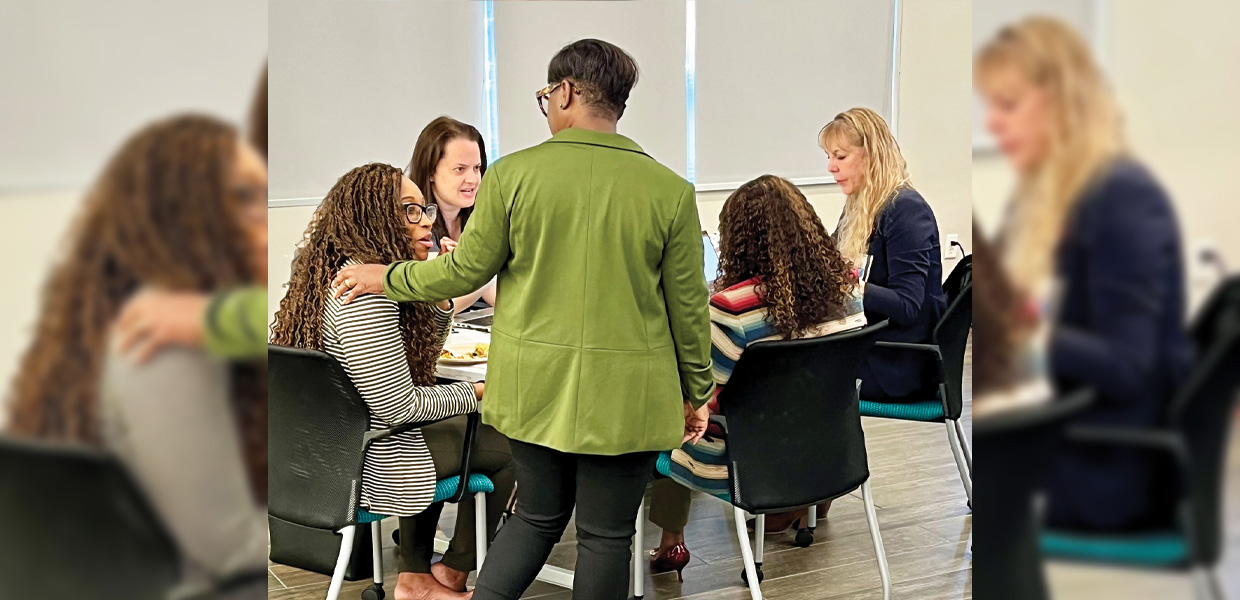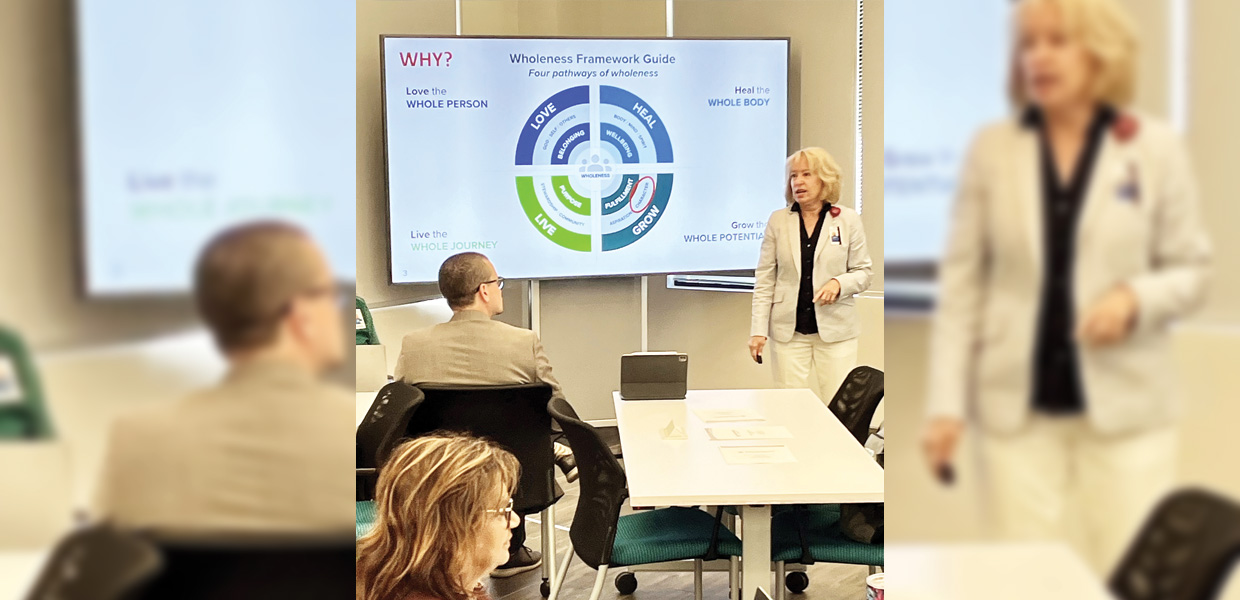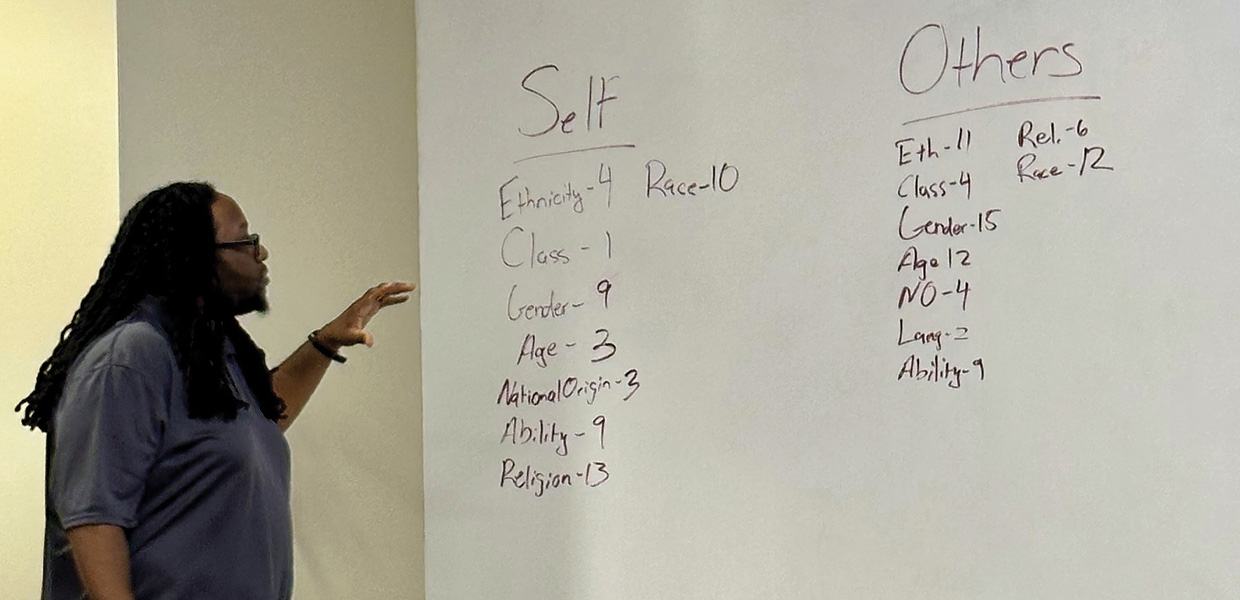


AdventHealth University took on an important research question: Do college students in a wholistic, faith-affirming environment have better rates of learning, retention, satisfaction, and successful transition to professional practice? The answer, faculty and staff leaders discovered, is a resounding yes.
AdventHealth University students are now immersed in a new educational experience that accounts for the whole person and ensures they are well-poised to practice high-quality, wholistic care when they graduate.
“Higher education should go far beyond the transactional. Our campuses are where ideas bloom, relationships form, and spirits are nurtured,” said C. Josef Ghosn, Ed.D., FACHE, AdventHealth University (AHU) president. “To be able to practice whole-person care, we found that students first need to feel valued, allowing them to build skills, resilience, empathy, and a commitment to compassionate care. We want every student to experience this, and then carry that into the community to patients and their families.”
AHU’s unique approach, named Whole Person Education, addresses students’ intellectual, psychological, spiritual, physical, and social development. These aspects are nurtured in four important ways.
Students feel valued and connected, encouraging collaboration, individuality, and growth. At six students for every faculty member, AHU offers the smallest college faculty-to-student ratio in Florida, allowing for robust conversations and interaction. Along with its federal designation as a Hispanic Serving Institution, AHU welcomes students to nurture their individual talents and interests with activities like a weekly knitting and crocheting group, and a student-led ukulele class.
Health care can be a demanding field, and AHU wants to set students up for success by instilling in them the importance of self-care, mental wellness, and work-life balance as they care for others.
Students and graduates carry with them a sense of satisfaction that allows them to make meaningful contributions to their communities.
A career in health care is often more than just a job — it’s a calling. Staff and faculty help students discover their purpose by integrating faith, service, and mission-driven learning into curriculum and student activities.
Nearly 80% of AHU’s graduates find employment within AdventHealth’s care network, which is deeply committed to caring for the physical, mental, and spiritual needs of patients and their families. Whole-person care fosters a natural transition to delivering whole-person care.
“We recognize the ways our society’s definition of true health has expanded beyond just physical health, reflecting our own long-standing understanding of whole-person care,” said Randy Haffner, Ph.D., group CEO of AdventHealth Florida and Clinical, and chair of the University’s Board of Trustees. “Our intention is to see graduates enter their professions with a mindset to help patients achieve health in all aspects of their lives, and we’re grateful for the opportunity to also elevate the ways we train and educate our future health care workforce.”
AHU is gaining national recognition for this teaching philosophy, and was selected to present at the 2024 annual conference of The Council of Independent Colleges, an association of more than 700 U.S. nonprofit schools. In addition, the University earned a $54,000 grant in early 2025 from The Council for implementation of this education model.
“Whole Person Education is more than a philosophy. It’s a living, learning environment where students are empowered to grow,” said Oleg Kostyuk, Ph.D., assistant to the president for mission at AdventHealth University. “We’re seeing lives transformed as students discover not only what they can do, but also who they are becoming.”
AdventHealth University | June 2025



Comments are closed.